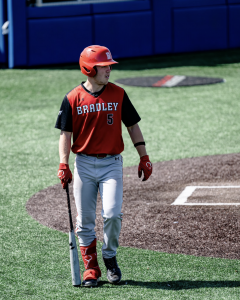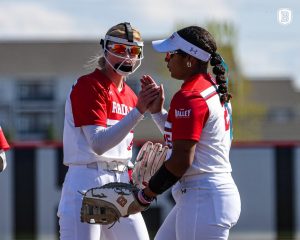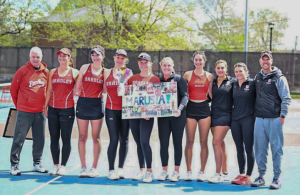Student-athletes at the end of their senior year often find themselves having to decide between continuing their athletic career or transitioning to life away from sports. Amid the COVID-19 pandemic, senior spring athletes find themselves making a similar decision: come back for another year or move on?
On March 30, the NCAA allowed schools to grant senior spring athletes an extra year of eligibility, giving them an opportunity to play one last season. This decision also means that certain financial factors, like providing scholarships, are up to the individual institutions to decide.
Outside of the financial implications of coming back, personal reasons may impact a student athlete’s decision.
Peoria native Luke Shadid was in a unique position as he finished his undergraduate degree in finance in three years and completed his MBA this past year. In order to be eligible to compete, student athletes need to be enrolled in at least nine credit hours, meaning Shadid would have to start yet another degree, something he is not willing to do.
“I really had no more school left to do,” Shadid said. “The option to go back to Bradley was already looking slim.”
On top of having no more educational routes to pursue, Shadid is looking forward to something in November: his wedding.
“I have a fiance,” Shadid said. “I chose to not take that option [of another year] … basically, because I didn’t have any more school and I’m going to have a wife.”
While his education and personal life were the driving factors for Shadid not returning, they were the difference makers for senior golfer Taylor Ledwein, who will return for another season.
Ledwein already missed part of her senior season due to injury and was heartbroken when her season was cut short. After looking into different options, she decided that coming back was in her best interest.
“I sat down and talked with my parents,” Ledwein said. “About the economy, what the job market was going to be like, there was no Q-school this summer, [and] how sad I was when I was injured and wanting that full season.”
Generally, golfers looking to gain membership to either the PGA or LPGA tours compete in that tour’s qualifying school, or “Q-school.” There are a number of different qualifying tournaments for golfers to earn their tour cards. As a result of the COVID-19 pandemic, the LPGA decided to cancel all qualifying events this year.
As a result of opting for an extra year, Ledwein decided to add a second major. Originally a marketing major with a concentration in global supply chain, she has now picked up a major in management and leadership.
Ledwein has not yet decided whether or not she wants to continue her golf career after she leaves the Hilltop.
“When I graduate, if I decide to … go into the labor force or to Q-School, that double major is only going to help me in the future,” Ledwein said.
In addition to her second major, Ledwein looks forward to having an extra year to build skills that she can apply on and off the course.
“Looking at it from a team aspect,” Ledwein said. “You can bring all these people from different areas and different backgrounds … you can just form a bond.”
That same bond is something that Shadid advises younger players to hold on to, while also continuing to put in the work.
“Remember the relationships and team bonding moments you shared with your teammates,” Shadid said. “[But] continue to work as hard as you can every day … and try to put yourself in the best position to get yourself where you want to be.”




